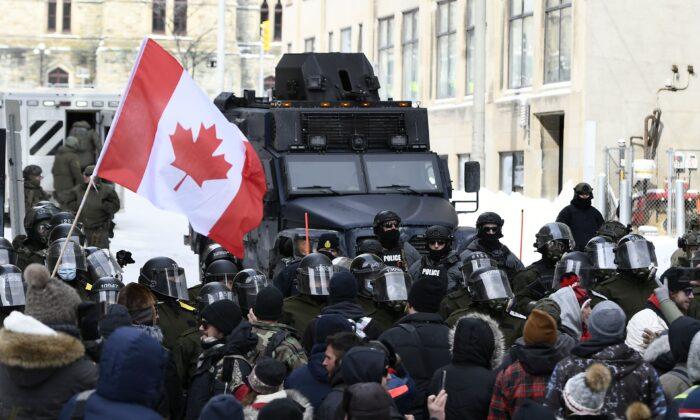Although we Canadians share similar values and parallel histories with our neighbours to the south, in the eyes of the world Canada is distinctly different. Pegged somewhere between British monarchy and American independence, we exhibit a European sensibility tempered by a pioneering spirit. You could call it freedom with a stiff upper lip.
One can make the case that Canada represents the gold standard of democracy. Canada may not possess the military might of the United States or some other countries, but we have pulled our weight in critical times, including pivotal roles in two world wars. The recent D-Day anniversary served as an important reminder of that. Canada never aspired to be an aggressor, but we are quick to stand with our allies in times of strife.
Our European roots endowed us with a strong Judeo-Christian ethic that formed the basis of our Western democratic values and the general character of our country. It is worth examining the state of this ethic in light of a rise in the rejection of Western values. As a multicultural nation that prides itself on welcoming all ethnicities, Canada has never overtly promoted or insisted on adherence to a particular creed, and for good reason; adherents of a particular faith do not respond well to the tenets of another religion being forced upon them.
As a way to preemptively mitigate any possible prejudice or discrimination, there has been an outright rejection of religious ideas and symbology in Canadian public life. The movement to abandon the Western traditional values and ideals that forged our nation is not in the best interest of Canadians.
The Western value system is more an ethical than theological treatise—one proven to be among the most effective and just conceptualizations for guiding individuals as well as nation states. Countries that share similar values by and large enjoy high levels of prosperity and personal freedom, and are better positioned to aid nations less fortunate.
From a socio-cultural standpoint, these ethics emphasize the sovereignty of the individual over the collective and have proven themselves to be a reliable cultural substructure to advance countries into developed status.
The rule of law, the dignity of human life, common decency, and traditional family values are deeply rooted in the Western ethic, but they are not exclusive to it. Many traditions throughout the world share variations of the same theme. There is a universality to these ethics and a palpable civility in countries that embody them. Separating the religious underpinnings from the outward expression of these values makes them easier to endorse in a secular society where religion has almost become a taboo subject. By rejecting our foundational ethics because of their Western origins, we are essentially nullifying centuries of societal refinement. If too much of our foundational principles are sacrificed, it will result in a fragmented society that lacks the moral fibre necessary to weather hard times.
By reverse engineering the characteristics of politeness and civility that won us international admiration as gracious hosts and civil guests, we can surmise the essence of what it means to be Canadian. Politeness embodies more than just being courteous; it represents humility, altruism, and stoicism, rather than merely outward pleasantries and adherence to social rules. Our politeness is free from pomp and superficialities. It has an endearing warmth and down-to-earth naturalness that is both humble and empathic.

Turning to a Values-Driven Path
The globalism that lifted some developing countries out of poverty also homogenized the values that govern international relations. As a result, the defining characteristics of each country have been sacrificed at the altar of progress. It’s a worldwide problem and one that Canada has not escaped. The cultural demise has been slow enough to be almost imperceptible, but looking back through the decades it is clear that we have lost some moral footing.For both the individual and the collective, a comprehensive value system is the surest way to navigate a complex world. Forces beyond our control are shaping the lives of Canadians, and values-driven action is the only antidote to uncertainty. It gives confidence, purpose, and ensures a level of consistency. On the other end of the spectrum is reactivity and fear, the default position for a large portion of North Americans.
Maintaining a homogenous set of values in a complex world where moral relativism is the norm is a difficult undertaking, but Canada is uniquely poised to successfully do this. Given its unique history, Canada has maintained enough connection to tradition to be able to revive and reinvent itself for the modern age. There is a growing sense among many Canadians that returning to a more traditional mode of being would result in better social cohesion. Moral relativism, a rudderless and anchorless motif, cannot provide a strong enough foundation to weather the inevitable difficulties of life.
There’s room in Canadian politics for a less fevered temperament that could allow for honest, meritorious debate and compromise for the greater good. It is within our power to take a step back from the ideological edge and bring some nobility and civility back to politics and public life.
The world is in need of exemplars of right governance, and Canada could play a role in developing that.





